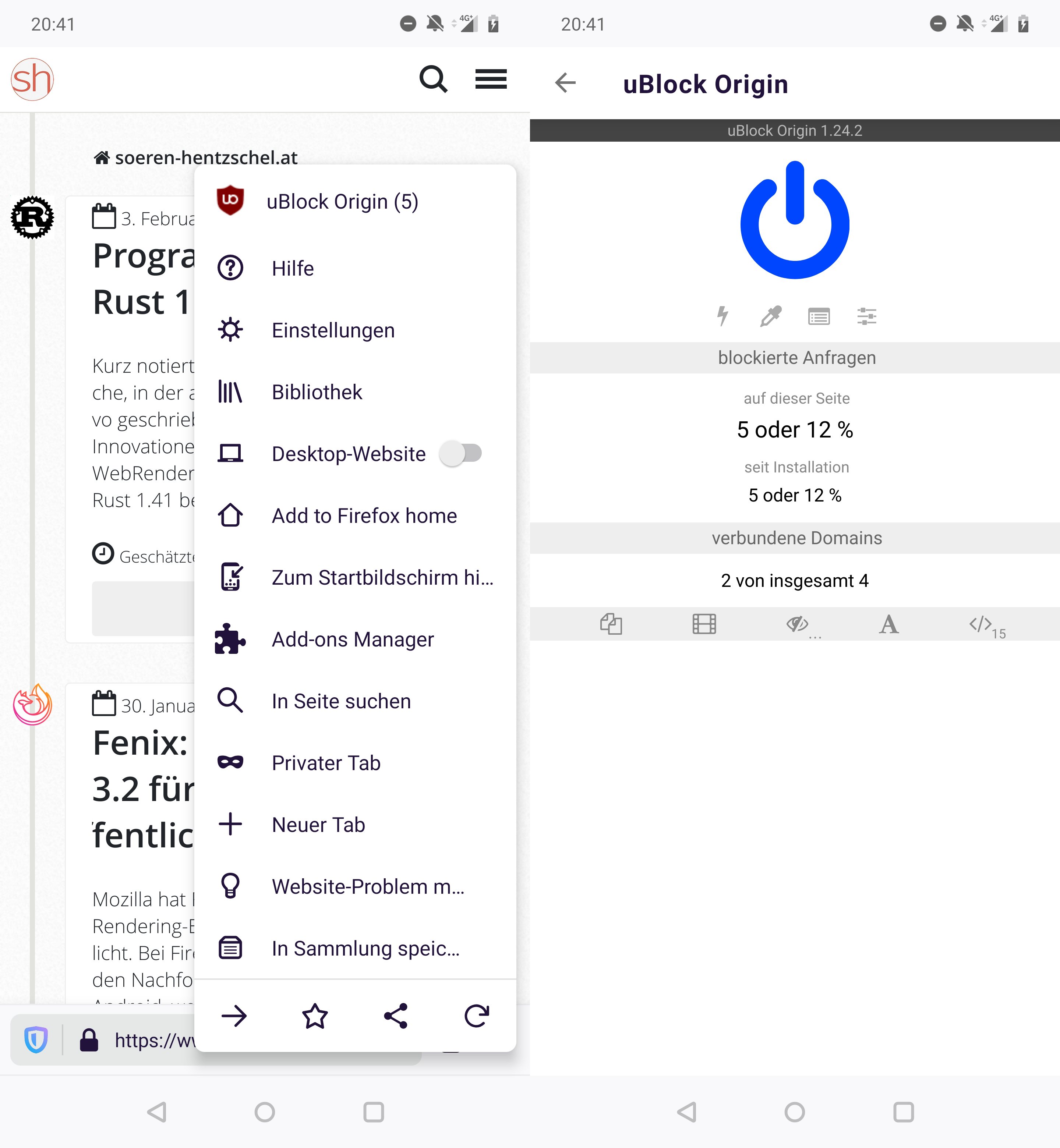Firefox browser gives you effortless privacy protection with lighting-fast page loads. Enhanced Tracking Protection automatically blocks over 2000 known online trackers from invading your privacy and slowing down your pages. Firefox browser also introduces a clean new design that makes it easier to get more things done, more quickly. Firefox Bikes reserves the right to make changes to product information without prior notice. Changes include alterations to specifications, artwork, price, available cycle models and colour options. Weight of the bike may vary in final production. Product Color may slightly vary due to photographic lighting sources or your monitor settings. The same-origin policy is a critical security mechanism that restricts how a document or script loaded from one origin can interact with a resource from another origin. It helps isolate potentially malicious documents, reducing possible attack vectors.
- UBlock Origin - An efficient blocker for Chromium and Firefox. gorhill/uBlock.
- The cors-everywhere addon works for me until Firefox 68, after 68 I need to adjust 'privacy.fileuniqueorigin' - false (by open 'about:config') to solve 'CORS request not HTTP' for new CORS same-origin rule introduced.
Today, with the launch of Firefox 87, we are excited to introduce SmartBlock, a new intelligent tracker blocking mechanism for Firefox Private Browsing and Strict Mode. SmartBlock ensures that strong privacy protections in Firefox are accompanied by a great web browsing experience.

Privacy is hard
At Mozilla, we believe that privacy is a fundamental right and that everyone deserves to have their privacy protected while they browse the web. Since 2015, as part of the effort to provide a strong privacy option, Firefox has included the built-in Content Blocking feature that operates in Private Browsing windows and Strict Tracking Protection Mode. This feature automatically blocks third-party scripts, images, and other content from being loaded from cross-site tracking companies reported by Disconnect. By blocking these tracking components, Firefox Private Browsing windows prevent them from watching you as you browse.
In building these extra-strong privacy protections in Private Browsing windows and Strict Mode, we have been confronted with a fundamental problem: introducing a policy that outright blocks trackers on the web inevitably risks blocking components that are essential for some websites to function properly. This can result in images not appearing, features not working, poor performance, or even the entire page not loading at all.
New Feature: SmartBlock
To reduce this breakage, Firefox 87 is now introducing a new privacy feature we are calling SmartBlock. SmartBlock intelligently fixes up web pages that are broken by our tracking protections, without compromising user privacy.
SmartBlock does this by providing local stand-ins for blocked third-party tracking scripts. These stand-in scripts behave just enough like the original ones to make sure that the website works properly. They allow broken sites relying on the original scripts to load with their functionality intact.
The SmartBlock stand-ins are bundled with Firefox: no actual third-party content from the trackers are loaded at all, so there is no chance for them to track you this way. And, of course, the stand-ins themselves do not contain any code that would support tracking functionality.
In Firefox 87, SmartBlock will silently stand in for a number of common scripts classified as trackers on the Disconnect Tracking Protection List. Here’s an example of a performance improvement:
Firefox Original
An example of SmartBlock in action. Previously (left), the website tiny.cloud had poor loading performance in Private Browsing windows in Firefox because of an incompatibility with strong Tracking Protection. With SmartBlock (right), the website loads properly again, while you are still fully protected from trackers found on the page.

We believe the SmartBlock approach provides the best of both worlds: strong protection of your privacy with a great browsing experience as well.
These new protections in Firefox 87 are just the start! Stay tuned for more SmartBlock innovations in upcoming versions of Firefox.
The team
This work was carried out in a collaboration between the Firefox webcompat and anti-tracking teams, including Thomas Wisniewski, Paul Zühlcke and Dimi Lee with support from many Mozillians including Johann Hofmann, Rob Wu, Wennie Leung, Mikal Lewis, Tim Huang, Ethan Tseng, Selena Deckelmann, Prangya Basu, Arturo Marmol, Tanvi Vyas, Karl Dubost, Oana Arbuzov, Sergiu Logigan, Cipriani Ciocan, Mike Taylor, Arthur Edelstein, and Steven Englehardt.

We also want to acknowledge the NoScript and uBlock Origin teams for helping to pioneer this approach.
We are pleased to announce that Firefox 87 will introduce a stricter, more privacy-preserving default Referrer Policy. From now on, by default, Firefox will trim path and query string information from referrer headers to prevent sites from accidentally leaking sensitive user data.
Referrer headers and Referrer Policy
Browsers send the HTTP Referrer header (note: original specification name is ‘HTTP Referer’) to signal to a website which location “referred” the user to that website’s server. More precisely, browsers have traditionally sent the full URL of the referring document (typically the URL in the address bar) in the HTTP Referrer header with virtually every navigation or subresource (image, style, script) request. Websites can use referrer information for many fairly innocent uses, including analytics, logging, or for optimizing caching.
Unfortunately, the HTTP Referrer header often contains private user data: it can reveal which articles a user is reading on the referring website, or even include information on a user’s account on a website.
The introduction of the Referrer Policy in browsers in 2016-2018 allowed websites to gain more control over the referrer values on their site, and hence provided a mechanism to protect the privacy of their users. However, if a website does not set any kind of referrer policy, then web browsers have traditionally defaulted to using a policy of ‘no-referrer-when-downgrade’, which trims the referrer when navigating to a less secure destination (e.g., navigating from https: to http:) but otherwise sends the full URL including path, and query information of the originating document as the referrer.
A new Policy for an evolving Web
The ‘no-referrer-when-downgrade’ policy is a relic of the past web, when sensitive web browsing was thought to occur over HTTPS connections and as such should not leak information in HTTP requests. Today’s web looks much different: the web is on a path to becoming HTTPS-only, and browsers are taking steps to curtail information leakage across websites. It is time we change our default Referrer Policy in line with these new goals.
Firefox Origin Ublock
Firefox 87 new default Referrer Policy ‘strict-origin-when-cross-origin’ trimming user sensitive information like path and query string to protect privacy.
Edge Ublock Origin
Starting with Firefox 87, we set the default Referrer Policy to ‘strict-origin-when-cross-origin’ which will trim user sensitive information accessible in the URL. As illustrated in the example above, this new stricter referrer policy will not only trim information for requests going from HTTPS to HTTP, but will also trim path and query information for all cross-origin requests. With that update Firefox will apply the new default Referrer Policy to all navigational requests, redirected requests, and subresource (image, style, script) requests, thereby providing a significantly more private browsing experience.
Firefox Original Icon
If you are a Firefox user, you don’t have to do anything to benefit from this change. As soon as your Firefox auto-updates to version 87, the new default policy will be in effect for every website you visit. If you aren’t a Firefox user yet, you can download it here to start taking advantage of all the ways Firefox works to improve your privacy step by step with every new release.”
